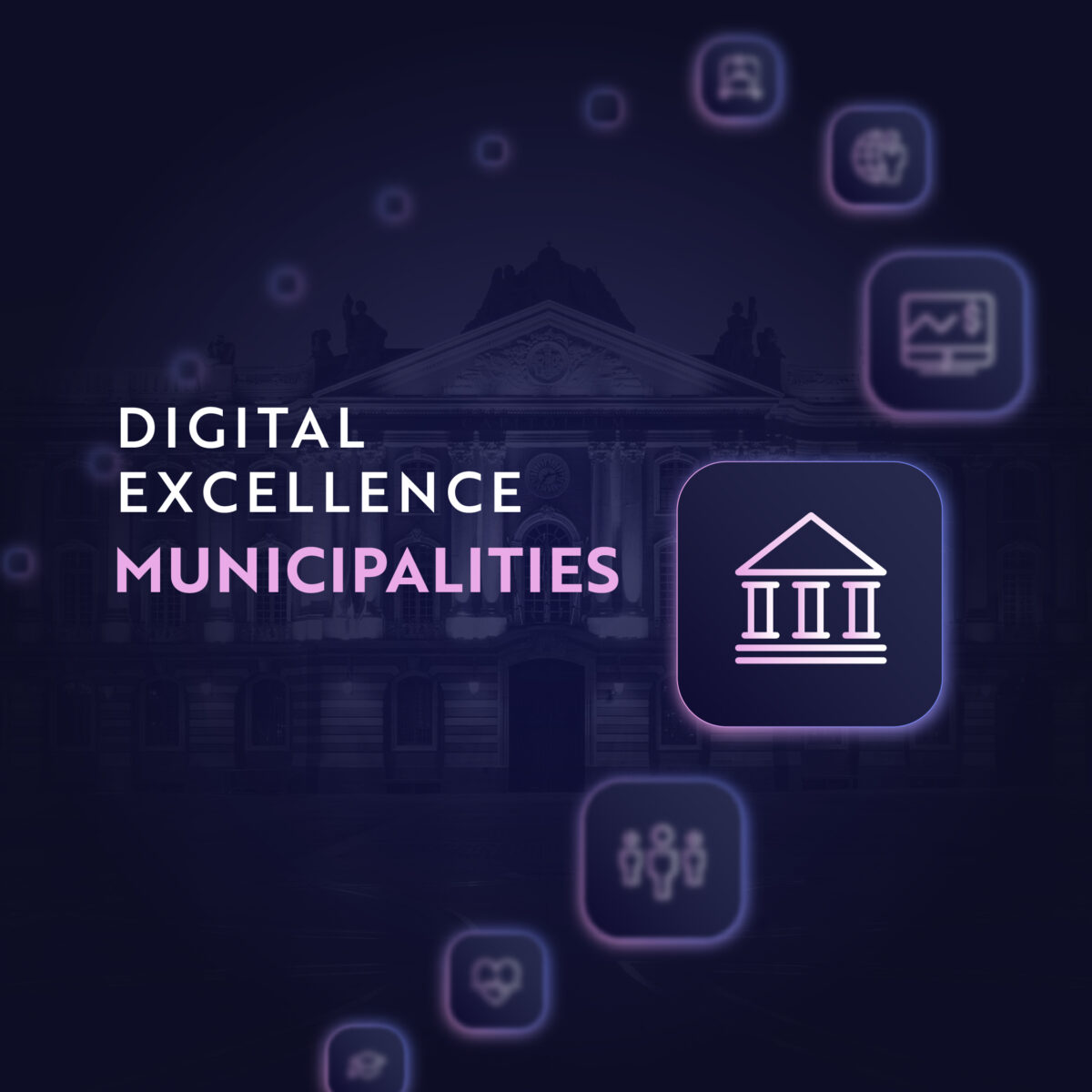
Key Technologies Transforming Excellence in Municipal Operations
- Internet of Things (IoT):
- Smart Infrastructure: IoT devices enable real-time monitoring of city infrastructure, such as streetlights, traffic signals, and waste management systems, improving efficiency and reducing costs.
- Environmental Monitoring: IoT sensors track air and water quality, noise levels, and weather conditions, providing valuable data for sustainability and urban planning initiatives.
- Artificial Intelligence (AI) and Machine Learning:
- Predictive Maintenance: AI algorithms analyze data from municipal assets, predicting maintenance needs to prevent failures and reduce downtime.
- Traffic Management: AI-driven analytics optimize traffic flow and reduce congestion through real-time analysis of traffic patterns and adaptive signal control.
- Data Analytics and Big Data:
- Citizen Insights: Data analytics provide insights into citizen behavior, preferences, and needs, enabling more effective policy-making and service delivery.
- Resource Allocation: Analytics tools optimize resource allocation for public services, improving efficiency and responsiveness.
- Mobile and Digital Platforms:
- Citizen Engagement: Mobile apps and digital platforms facilitate communication between citizens and municipal governments, providing channels for feedback, service requests, and community participation.
- E-Government Services: Digital solutions streamline administrative processes, enabling citizens to access services online, such as permit applications, bill payments, and voter registration.
- Blockchain:
- Secure Transactions: Blockchain technology enhances transparency and security in public transactions, reducing fraud and increasing trust in municipal processes.
- Land and Property Records: Blockchain provides secure, tamper-proof records of land ownership and property transactions, improving efficiency and reducing disputes.
Benefits and Challenges of Digital Excellence in Municipal Operations
- Benefits:
- Improved Service Delivery: Digital technologies enable municipalities to deliver services more efficiently, enhancing citizen satisfaction and quality of life.
- Operational Efficiency: Automation and data analytics streamline operations, reduce costs, and improve resource allocation, optimizing municipal performance.
- Enhanced Citizen Engagement: Digital platforms facilitate communication and collaboration between citizens and government, fostering transparency and trust.
- Challenges:
- Technological Integration: Integrating new digital technologies with existing systems requires careful planning and investment, particularly for municipalities with legacy infrastructure.
- Cybersecurity Risks: The increased reliance on digital technologies exposes municipalities to cyber threats, necessitating robust security measures.
- Digital Divide: Ensuring equitable access to digital services for all citizens, including underserved and rural communities, is critical to achieving inclusive digital transformation.
Digital Excellence in Municipal Operations: Strong Use Cases
- IoT-Enabled Smart Infrastructure:
- Cities like Barcelona use IoT sensors to optimize street lighting, waste management, and water usage, reducing costs and enhancing sustainability.
- AI-Driven Traffic Management:
- Municipalities such as Los Angeles leverage AI algorithms to optimize traffic signals and reduce congestion, improving traffic flow and reducing emissions.
- Blockchain for Land Records:
- Cities like Dubai utilize blockchain technology to maintain secure and transparent land and property records, increasing efficiency and reducing disputes.
Compelling Case Studies
Barcelona: Smart City Transformation
Barcelona has implemented a wide range of IoT solutions to enhance municipal services, from smart streetlights that adjust to environmental conditions to waste management systems that optimize collection routes. By leveraging IoT technology, Barcelona improves efficiency, reduces costs, and enhances the quality of life for its citizens.
Los Angeles: AI for Traffic Optimization
Los Angeles has deployed AI-driven traffic management systems to optimize signal timing and reduce congestion. By analyzing real-time traffic data, the city improves traffic flow, reduces travel times, and decreases pollution, demonstrating the potential of AI to transform urban mobility.
Main Recommendations
- Invest in IoT and AI Technologies:
- Prioritize investment in IoT and AI technologies to enhance infrastructure efficiency, improve service delivery, and optimize operations. Embrace data-driven decision-making to drive innovation and competitiveness.
- Enhance Citizen Engagement:
- Leverage digital platforms to facilitate communication and collaboration with citizens. Focus on improving transparency, responsiveness, and participation through innovative solutions.
- Utilize the Digital Maturity Index (DMI):
- Conduct regular DMI assessments to evaluate digital capabilities, identify gaps, and develop strategic roadmaps for transformation. Use these assessments to guide decision-making and prioritize initiatives.
- Strengthen Cybersecurity Measures:
- Implement robust cybersecurity strategies to protect digital assets and sensitive information. Ensure compliance with industry standards and regulations to safeguard against cyber threats.
- Address the Digital Divide:
- Develop strategies to ensure equitable access to digital services for all citizens. Focus on bridging the digital divide by investing in infrastructure, education, and outreach initiatives.
Conclusions
The municipal operations sector is undergoing a digital transformation that presents both challenges and opportunities. By embracing digital technologies and focusing on efficiency and citizen engagement, municipalities can unlock significant community value and maintain a competitive edge. Municipal leaders must prioritize digital transformation initiatives and leverage tools like the Digital Maturity Index to guide their journey toward digital excellence in municipal operations. In doing so, they can drive sustainable growth and prosperity while delivering exceptional public services in a rapidly evolving urban landscape.


















